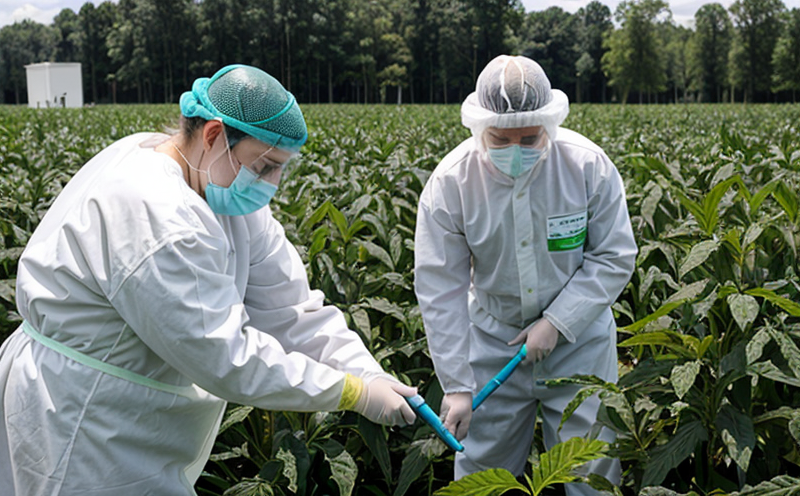ISO 17603 Microbial Diversity Assessment in Biocontrol Studies
The ISO 17603 standard provides a robust framework for assessing microbial diversity within biocontrol agents and beneficial microorganisms used in agriculture, horticulture, and environmental remediation. This method ensures that biocontrol products are effective by evaluating the presence of specific microbes that contribute to their efficacy.
Microbial diversity is crucial in biocontrol studies as it affects the product's ability to suppress pathogens or promote beneficial plant growth. By adhering to ISO 17603, laboratories can provide reliable and consistent data that meet regulatory requirements and support product development.
The process begins with the isolation of microbial samples from a biocontrol agent. These samples are then analyzed using advanced molecular techniques such as next-generation sequencing (NGS) and quantitative PCR (qPCR). The NGS approach allows for an exhaustive cataloguing of all bacterial species present, while qPCR quantifies specific target organisms.
The results are reported according to the ISO 17603 guidelines, which specify that the diversity index should be calculated based on Shannon-Wiener and Simpson’s diversity indices. This ensures consistency across laboratories and facilitates comparison of different biocontrol products.
For effective testing, it is essential to use high-quality reagents and sterile techniques throughout sample preparation and analysis. The choice of growth media can also influence the results, so standardized media are used where appropriate. Additionally, quality control measures such as spike controls and internal standards help ensure accurate quantification.
The importance of this standard cannot be overstated, especially in industries where microbial products play a key role in maintaining plant health or controlling pests. Compliance with ISO 17603 helps companies meet regulatory obligations and gain consumer trust through transparent product claims.
| Sample Preparation | Analytical Techniques | Diversity Indices Calculated |
|---|---|---|
| Isolation of microorganisms from biocontrol agent using appropriate media. | Next-generation sequencing (NGS) and quantitative PCR (qPCR). | Shannon-Wiener and Simpson’s diversity indices. |
Eurolab Advantages
- State-of-the-art facilities equipped with the latest technology for microbial analysis.
- Experienced scientists specializing in biocontrol and beneficial microbiology.
- Comprehensive quality management system certified to ISO 9001:2015.
- Strict adherence to international standards including ISO 17603, ASTM E2741, EN 16785-1.
Eurolab’s commitment to excellence ensures that each test conducted meets the highest scientific and regulatory standards. Our expertise in biocontrol and beneficial microbiology allows us to provide accurate and reliable data that can be trusted by clients worldwide.
Quality and Reliability Assurance
- Detailed protocols for sample handling and preparation to prevent contamination.
- Use of certified reference materials (CRMs) to calibrate analytical instruments.
- Ongoing training and validation of laboratory staff using proficiency testing programs.
- Regular audits by independent third parties to ensure compliance with ISO 17603.
The quality assurance process at Eurolab is designed to minimize errors and ensure consistent results. By implementing these rigorous measures, we guarantee the reliability of our test findings, which are critical for decision-making in biocontrol product development.
Use Cases and Application Examples
- Evaluating the microbial content of biopesticides to ensure they meet regulatory requirements.
- Determining the effectiveness of soil amendments in enhancing plant health through beneficial microbes.
- Assessing the impact of microorganisms on disease management in greenhouse crops.
- Monitoring the diversity and activity levels of microbial communities in bioremediation projects.
These applications highlight the versatility of ISO 17603 testing. By providing detailed insights into microbial composition, this service aids in optimizing product formulations and ensuring they are effective against targeted pathogens or beneficial for plant growth.





